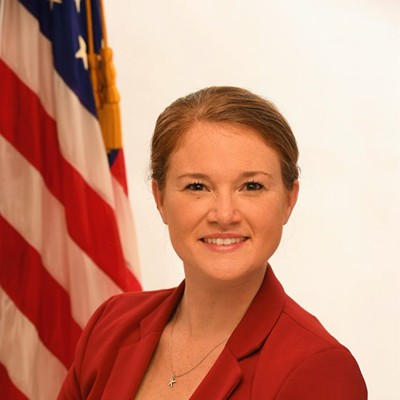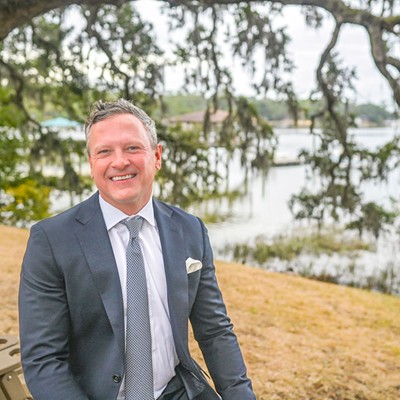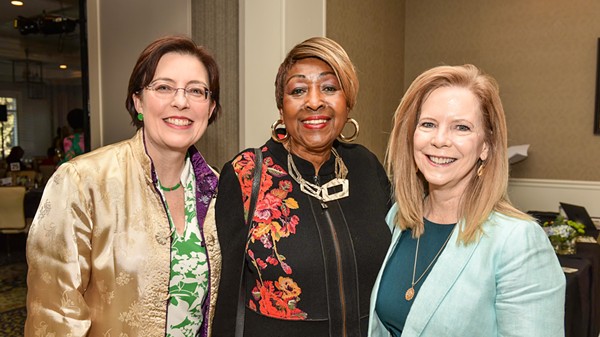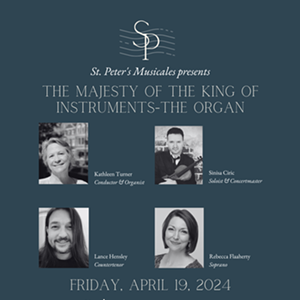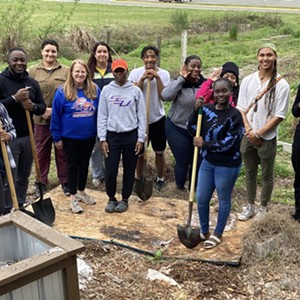HERE'S A RIDDLE: What has 16 members, is co-chaired by the leaders of the Georgia House and Senate Transportation Committees, is charged with "identifying new sources and methods of funding for critical transportation infrastructure needs," and visited Savannah on Oct. 1?
The Joint Study Committee on Critical Transportation Infrastructure Funding, of course!
I sat in the Savannah International Trade & Convention Center for several hours listening to presentations from organizations ranging from the Savannah Chatham Metropolitan Planning Commission to the Georgia Motor Trucking Association.
I came to this conclusion: The committee is mainly focused on the “critical infrastructure needs” of metal boxes. These boxes might have people inside, but not too many.
A Peterbilt 579 or BMW 528i, yes. A transit bus or a passenger rail car, no.
The human occupants of the boxes seemed largely unimportant to the discussion, except when it came to how much those humans (or the corporations that employ them) must pay to keep the boxes moving as freely and swiftly as possible.
That’s the “funding” part of the Joint Study Committee on Tractor-trailers, Boxcars, Shipping Containers and Private Automobiles.
Only the MPC’s Tom Thomson, who talked about the Coastal Region Metropolitan Planning Organization’s Nonmotorized Transportation Plan, and Chadwick Reese of Chatham Area Transit, deviated from the script. Several committee members actually wandered off the dais during Reese’s presentation, which addressed among other things, rising transportation costs and the enormous burden they place on people who are working hard, but barely getting by.
Investing in public transit can improve household budgets and reduce traffic congestion. It’s a shame those officials didn’t remain in the room to hear that message.
That’s not surprising, though, as most committee members represent rural and suburban areas and probably don’t care much about transit. They keep their district offices in towns such as Newington, Auburn, Ocilla and Reidsville.
In places like these, decades of funding infrastructure solely for automobiles has drained the vitality of town centers, fueled sprawl, and made citizens dependent on cars for every trip. It’s the worst of both worlds. Big enough for problems, too small for solutions like transit.
I’m thankful to live in a community that benefits from public transit and is dense enough (in some places) that residents can get around just fine on foot or by bicycle. However, I worry about the political will of citizens and leaders to make the most of our transportation options.
Those of us, who have the choice to drive, often have trouble putting ourselves in the shoes of those who don’t have that choice. We complain about having to get up 30 minutes earlier on workday mornings to contend with congestion on I-16, while others have to leave for work hours early to catch the bus or combinations of buses.
While we fume about traffic from the comfort of our climate controlled cars, other people shiver at bus stops in the predawn hours. Next time you think you have a case of the Mondays, picture yourself standing in the rain at the bus stop on Skidaway Road, near the intersection of 52nd Street. Cars and trucks are flying by, just a few feet from where you stand in the mud and weeds.
We like to grouse about CAT buses with only a few passengers aboard certain times on certain routes, while ignoring the fact that most of the cars on our streets (including our own) have only one person inside. Not just certain times on some streets.
The amount of money poured into increasing roadway capacity to accommodate single occupant vehicles dwarfs what we spend on transit, pedestrian and bike infrastructure. And it has only made matters worse because, as transportation planner Walter Kulash famously put it, “Widening roads to solve traffic congestion is like loosening your belt to cure obesity.”
The Joint Committee will deliver its recommendations on Nov. 30, which could include an increase in Georgia’s gasoline tax, one of the lowest in the nation (It’s worth mentioning here that the federal gasoline tax hasn’t been raised since 1993).
No matter what the committee’s funding prescriptions turn out to be, they should be accompanied by a serious discussion of what truly constitutes a “critical need.” That’s the riddle we must solve.



